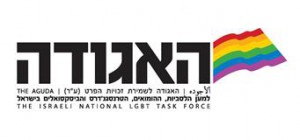The Wigstock Riots occurred on the evening of May 22, 1998 in Tel Aviv, Israel when police shut down a drag show called Wigstock an hour early in order to observe the Jewish Sabbath. Resembling more of a confrontational protest than a full-fledged riot, the event marked the first major disturbance by LGBTQ Israelis in asserting their rights. It is seen as Israel’s Stonewall moment, an event of civil unrest that led to greater visibility and civil rights for Gay people.
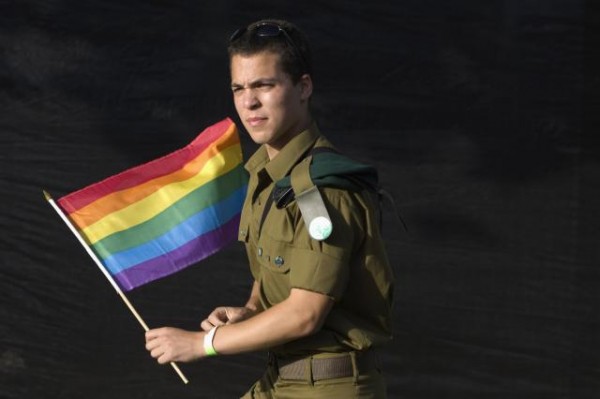
Jerusalem Pride, June 25, 2009. Photos: Ronen Zvulun, Darren Whiteside, Baz Ratner. Reuters, Jerusalem (blogs.reuters.com/axismundi/2009/06/25/the-many-sides-of-jerusalems-gay-pride-parade, January 2013)
Predecessors: Woodstock and Wigstock NYC
Wigstock is an annual open-air drag event in Tel Aviv that gets its name from a drag event held in New York City at the end of summer, which in turn took its name from another famous event, the Woodstock Festival in 1969, a massive counter-culture rock music event held in upstate New York. Wigstock NYC was started in the spring of 1984 by a group of drag queens, including Lady Bunny, who decided to leave the Pyramid, the club where they were getting inebriated, and put on a spontaneous show in Tompkins Park. Lady Bunny then got permits to hold a full-scale festival the following year. Wigstock NYC has raised money for charities, including the GMHC (Gay Men’s Health Crisis), an organization dedicated to providing services for people with AIDS.
Wigstock Tel Aviv: 1998
In imitation of Wigstock NYC, the Agudah (Hebrew: “association,” “gathering,” or “union”, one of the first LGBTQ rights organizations in Israel and founded in 1975) sponsored its own annual Wigstock in Tel Aviv.
The place and timing of the Wigstock Riots in terms of Israeli history and Jewish tradition is important in understanding the impact of the event. The 1998 Tel Aviv Wigstock was held at Tel Aviv’s Independence Park, one month after Yom Ha’atzmaut, Israel’s Independence Day on the fifth day of the month of Iyar (the day varies each year on the Gregorian Calendar). 1998 marked the fiftieth anniversary of Israel’s existence as a nation. There is also the Jewish religious notion of the fiftieth year as Yovel, the Jubilee, a year after a cycle of seven-times-seven (49) years. Yovel is also a time to liberate those held in bondage. In addition to 1998 being the fiftieth anniversary, transwoman and club music songstress Dana International had won the prestigious Eurovision Song Contest a few weeks earlier despite attempts by some Israelis to prevent her from competing in the name of Israel because of her Trans status. Following the example of Wigstock NYC, the event was an AIDS fundraiser.
Wigstock 1998 was held on Friday May 22, and Friday is Erev Shabbat, the day before the Jewish Sabbath. Originally, the Agudah had obtained a police permit until 7 PM (shutting down early in observance of the Sabbath, which starts at sundown), but the city gave them an hour extension. The police, however, did not recognize the city’s extension, and at 6:45 ordered Wigstock to shut down. Since the police did not resolve the bureaucratic discrepancy in favor of the festival, approximately 2000 of the 10,000 attendees marched out of Independence Park and blocked the intersection of two major thoroughfares, HaYarkon and Jabotinsky Streets, for two hours. Others raised the rainbow flag in front of City Hall. Some of the protesters were arrested, but were released a few hours later.
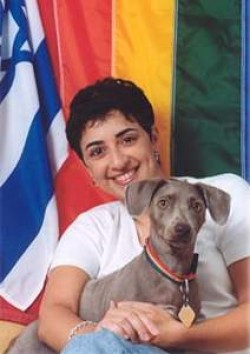
Michal Eden, Israeli politician. When the police ordered Wigstock to shut down, Eden went onstage and told the protesters that if the music did not continue, they should block HaYarkon Street (andrejkoymasky.com/liv/fam/ bioe1/eden01.html)
Significance of the “Riots”
The importance of the Wigstock Riots should be seen in the context of the history of LGBTQ rights in Israel. This was the first time people had chosen to flagrantly break the law concerning public demonstration in favor of Gay rights, even if it would only be for the right to continue a drag festival for another hour. Taking into account that the biggest opponents of the LGBTQ community are those who claim religious authority to condemn it, the notion that Gay people should have to end their festival early because of the Sabbath was especially aggravating to many of the celebrants.
Civil disobedience associated with LGBTQ folks that had occurred before the Wigstock Riots was against the Gay community by religious extremists. This problem would later plague Jerusalem, where events such as Wigstock in Tel Aviv raised concerns among some in the Orthodox Jewish community that Jerusalem would be the site of similar public LGBTQ functions. Labeled a profanity, Pride celebrations inspired homophobic people to engage in public violence and destruction of property.
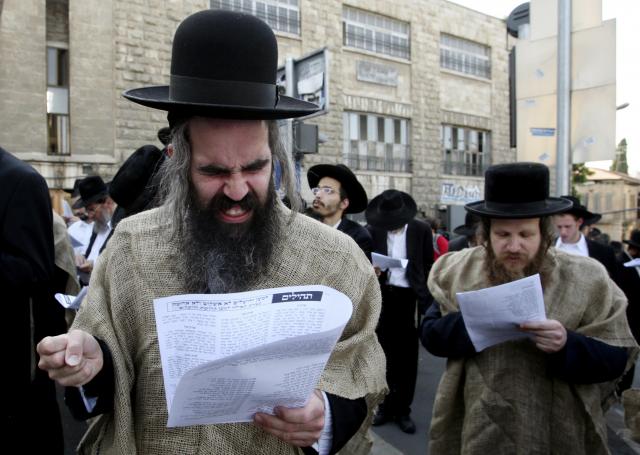
Orthodox men protesting Jerusalem Pride, wearing sackcloth as a sign of mourning while uttering prayers and curses, June 25, 2009. Photos: Ronen Zvulun, Darren Whiteside, Baz Ratner. Reuters, Jerusalem (blogs.reuters.com/axismundi/2009/06/25/the-many-sides-of-jerusalems-gay-pride-parade, January 2013)
In 2005, protesters disrupted the first Jerusalem Pride march by throwing urine and feces at the marchers, and one of the protesters stabbed three marchers. In 2006, some Pride participants were arrested in Jerusalem for attempting to conduct the march after police moved it to a sports stadium due to death threats. In 2007, there was an attempt to bomb the route of the marchers, causing another cancellation. In 2008, the situation had improved. The most resistance Jerusalem Pride members faced when their march was allowed to proceed that year were demonstrators holding signs, praying, and some reciting ancient curses at them and at the police who protected them.
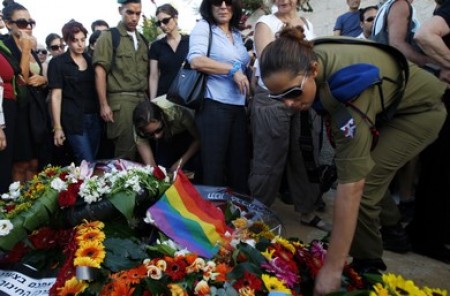
Why Wigstock and Tel Aviv/Jerusalem Pride matter: in August 2009, a masked gunman fired bullets at people in Israel’s LGBT Task Force center for young folks, Bar Noar (Youth Bar) in Tel Aviv, killing 26-year-old volunteer Nir Katz and 16-year-old Liz Trubeshi. “Israeli mourners gather around the grave of Nir Katz during his funeral in the Israeli city of Modiin near Tel Aviv August 2, 2009. Israel’s gay community was rocked on Sunday by the killing of two people, one of them Katz, in a homosexual and lesbian youth centre and the possibility they fell victim to a hate crime in the Jewish state’s most freewheeling city. REUTERS/Baz Ratner” (jpost.com/Features/InThespotlight/Article.aspx?id=272153, January 2013)
In November of 1998, Michal Eden, a Lesbian activist who called for the unauthorized protest after Wigstock was shut down only a few months before, was elected to the Tel Aviv City Council.
– Mickey Weems
QEGF Authors and Articles
QEGF Introduction
Comments? Post them on our Encyclopedia facebook page.
Further reading:
Aviv, Caryn and David Schneer. New Jews. New York: New York University, 2005.
Walzer, Lee. Between Sodom and Eden: A Gay Journey Through Today’s Changing Israel. New York: Columbia University, 2000.

